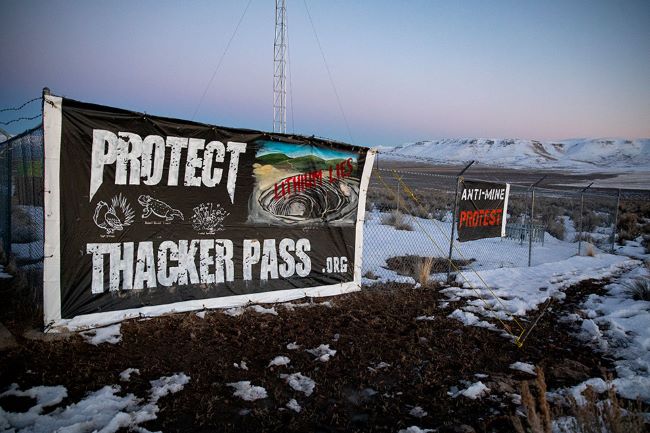
On January 15, the US Bureau of Land Management (BLM) approved a lithium mine at Thacker Pass, the site of the largest known lithium deposit in the United States. Through its subsidiary Lithium Nevada, Vancouver-based Lithium Americas plans to dig a 1,000-acre open-pit mine to tap into the estimated $2.6-billion resource over the next 45 years.
But at Thacker Pass, Wilbert and Falk — and a growing list of ranchers, farmers, tribal members, and environmentalists — have argued that this transition to a clean energy future has, so far, been anything but clean, or just. They assert that the mining industry is simply greenwashing old practices and exploiting the political climate that favors green energy, while using the laws that have enabled dispossession and destroyed environments for over a century. Their struggle also highlights a conundrum green energy proponents are grappling with: From catalytic convertors to photovoltaic solar panels and more, most of the low-carbon technologies deemed necessary for a green energy transition need non-renewable natural resources — metals like lithium, copper, platinum, and rare earth minerals — for their hardware. This means that so far it has been impossible to decouple these technologies from mining, which by its very nature is ecologically destructive.
